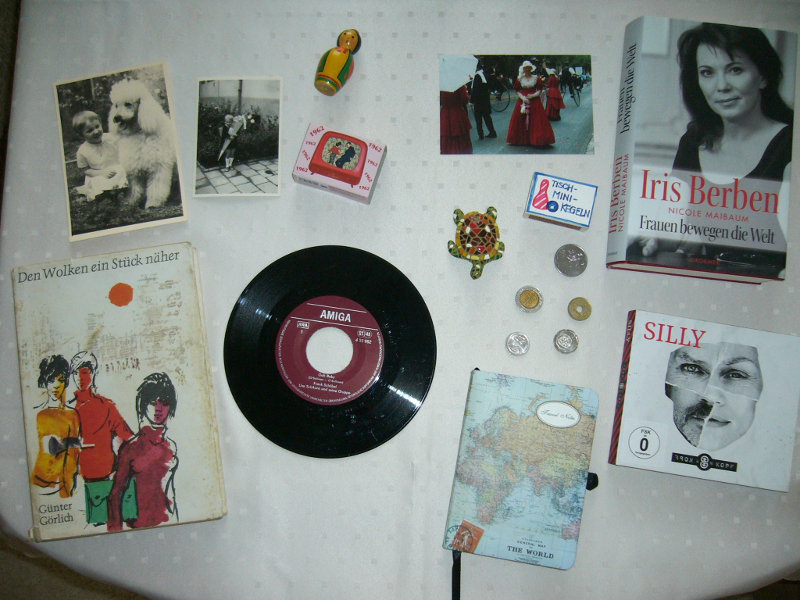I, Irena, was born in 1962 in former East Germany and grew up in a small town called Sangerhausen. It was there that I spent a wonderful childhood with many family activities, holidays with the grandparents on the farm, an adventurous adolescence with friends, shared vacations and arguments about being allowed longer visits to the disco. In the mid 90’s I took advantage of the opportunity to study social education. I have been working as an educational Advisor in Magdeburg for 12 years now. A major focus of my work for me is “girl’s work”.
My life and my encounter with gender inequality:
After completing high school I started to study and, after four years, I was allowed to call myself “teacher for the lower classes”. In the first eight years of work, I was a teacher, after-school care assistant, leader of the school’s political organisations and worked in a holiday camp in the Harz Mountains. In GDR times, it was rather unusual to change jobs every two years. Until then, I had never felt that I had been treated unequally because my life had been very straightforward.
After the turn of 1989 and the reunification of the two German republics in 1990, I returned to Sangerhausen and had very different experiences.
Above all I had work-related questions: what can I still even do professionally with my training from GDR?
At this time, as an educational Assistant at a leisure centre, I took many opportunities to further my studies and that was not always in Saxony-Anhalt. So I travelled a lot – Hannover, Cologne, Bonn…
In 1991, the equal opportunities officer from Sangerhausen came back from a nationwide meeting. She explained in a consultation, that, in Germany, model projects entitled “Girls’ work for the new federal States” were being brought to life and we could submit applications. I had a lot of questions: what is girls’ work? Why should it only be for girls?
Were we really all equal in the GDR? Until then i had been sure that, as a woman in the GDR, I had equal rights.
I confronted my own personal and professional development as a girl and as a young woman and established that my career choice to become a teacher, despite being absolutely what I had wanted, was also politically encouraged and supported. Through my work with the girls from 1990 it became clear that the chance of a girl getting a job in a predominantly male-dominated profession was restricted. At the same time I became aware that girls and women would have to fight for their rights in this new society. I had to learn that too!
However this realisation has motivated me to apply for the federal model project with a colleague. In 1992 we received approval for the girls’ meeting in Sangerhausen (Saxony-Anhalt, Germany).
The project aimed to highlight the girls’ strengths. To raise the girls’ awareness, to help them come to terms with their own role and to motivate them to pursue their own (personal and professional) goals and to fight for them.
We were constantly ridiculed, mainly by male professionals, for working with girls. They assured us that the project would last no longer than two years. In decision-making bodies, which were primarily male dominated, we had to repeatedly explain why we work with girls. Sport projects for boys directly received financial support.
I have worked on this project for over 10 years… Looking back, I am proud to be able to say that I have helped many girls to find their way in life and to fight for their own goals.
In recent years, girls and young women have achieved a lot in terms of equality. However there can still be no talk of equality of the sexes.
My vision of the future:
Improved opportunities for girls and young women, I would like to campaign for that in my work in the future. I would like to use World Girl’s Day, which we have been celebrating in Saxony-Anhalt since 2012, to continue raising awareness of discrimination against certain target groups (education, training, equal pay on the labour market, women in managerial positions, etc.) and to reduce inequality.

